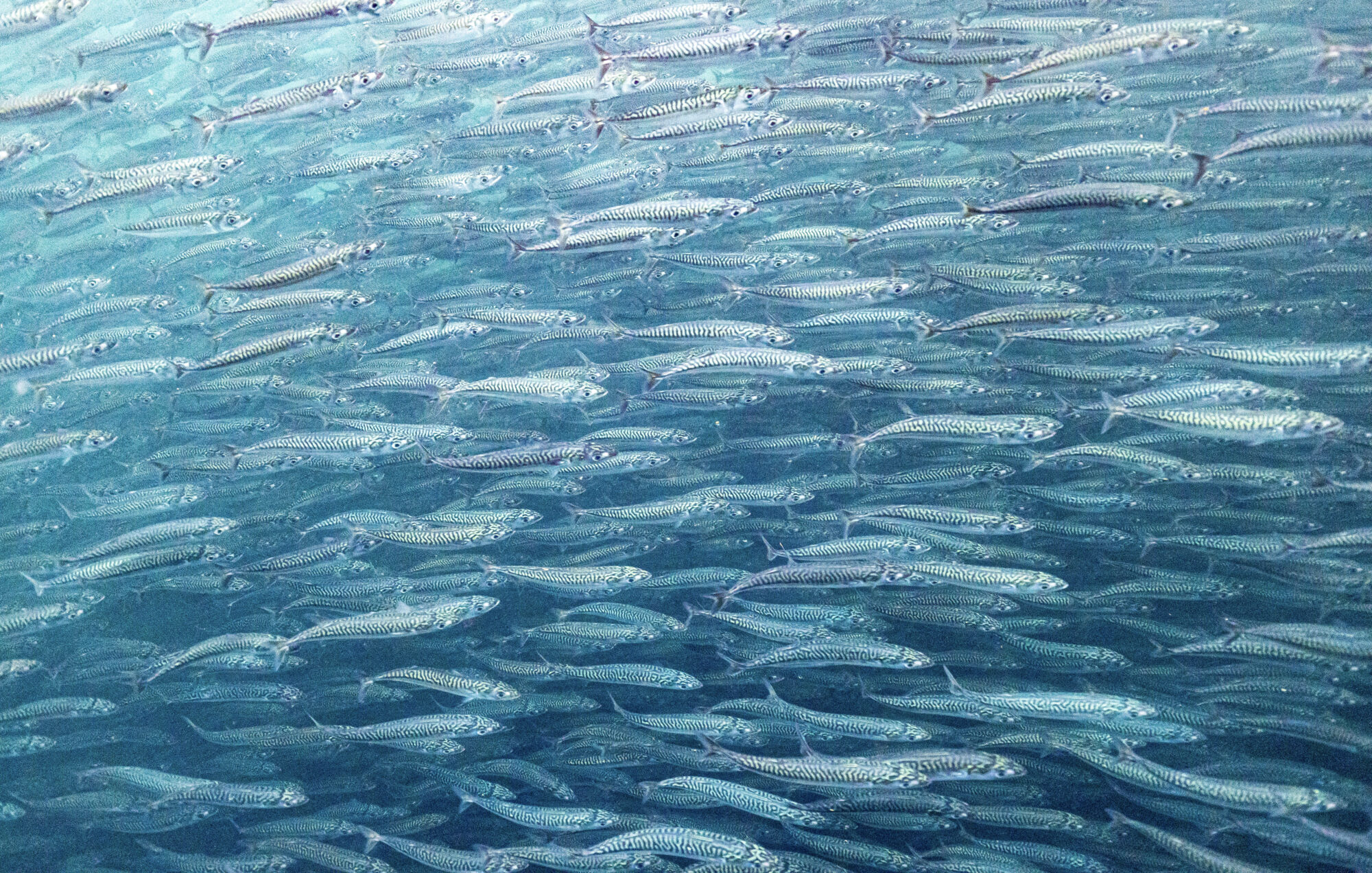
Oceans North Supports 500-tonne Bait Fishery as Part of Mackerel Stock Rebuilding
April 11, 2025
HALIFAX—Oceans North is recommending that the bait fishery for Atlantic mackerel be set at 500 tonnes for the 2025 season as efforts continue to rebuild the stock back from the critical zone.
“We remain hopeful that the stock will rebuild to levels that can support a commercial fishery again,” says Katie Schleit, Fisheries Director at Oceans North. “In the meantime, we are pleased that a 500-tonne bait fishery can continue and, when paired with a continuation of last year’s monitoring system, can meet the rebuilding objectives.”
In 2022 and 2023, DFO placed a moratorium on the bait and commercial fisheries for Atlantic mackerel after years of dramatic decline in the stock’s health. In 2024, a bait fishery of 470 tonnes was permitted. The most recent scientific assessment of Atlantic mackerel shows that the stock remains at critically low levels and there are no positive signs of growth.
“Allowing mackerel to recover makes both environmental and economic sense.”
– Katie Schleit, Fisheries Director
Atlantic mackerel is on the list of major stocks that are currently subject to the fish stock provisions under the Fisheries Act. This means Fisheries and Oceans Canada (DFO) has a legal obligation to rebuild these stocks out of the critical zone. Following stakeholder consultation, DFO released a rebuilding plan for mackerel in 2024 that includes an objective of growing the stock out of the critical zone with a 75 percent probability.
The latest projections show that the probability of growth—i.e., that the spawning stock biomass in 2027 will be greater than it was in 2025—is approximately 81 percent at a total allowable catch of 0 (considering bycatch, recreational removals and estimated U.S. catch), and 75 percent at a TAC of 500 tonnes. Any removals above this level showed lower probabilities of growth than the rebuilding objective.
As “forage fish,” mackerel play a crucial role in Atlantic ecosystems: they are prey for whales and seabirds, as well as for commercially caught species such as tuna. They are also commonly used as bait in the region’s lucrative lobster fisheries.
Oceans North commissioned a socio-economic analysis from Gardner-Pinfold Consulting in 2020 that showed rebuilding the mackerel stock could lead to benefits estimated at over $54 million, with a 12.9 percent return on the “investment” in stock rebuilding. A separate study by the same economists also revealed the additional but often unconsidered value forage fish such as mackerel bring to the ecosystem as a whole. Taking this value into account only strengthens the case for rebuilding forage fish stocks.
“Allowing mackerel to recover makes both environmental and economic sense,” Schleit says. “Following the rebuilding plan for this stock is expected to allow commercial fishers, communities, and the marine organisms that depend on mackerel to once again maximize the benefit of this species.”
For more information, please contact:
Alex Tesar
Communications Director
Oceans North
[email protected]
